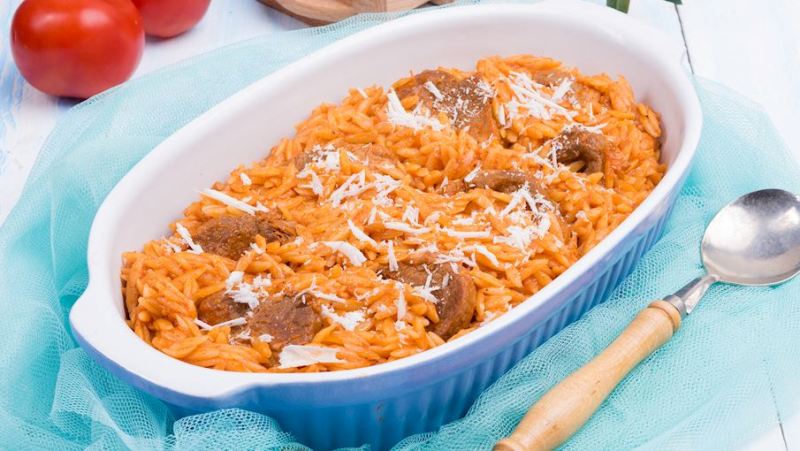The greek plates Giouvetsi, Pastitsio and Moussaka between the 10 Best Rated Casseroles in the World according to Taste Atlas.
At the top is Pastel de choclo Chile’s favorite home-cooked meal, the soft and creamy pastel de choclo is a casserole-like pie that is also popular in Peru, Argentina and Bolivia. It consists of ground beef, chicken, black olives, onions, hard-boiled eggs, and corn flour dough called choclo.
Check the plates below and the list:
Giouvetsi – Nr 4
This classic Greek casserole consists of a combination of pasta and tomato-braised meat that is prepared as a one-pot oven dish. Although veal is the traditional choice, various types of meat may be employed, while the rich tomato sauce is usually seasoned with cinnamon, allspice, red wine, cloves, and bay leaves.
Tradition suggests using two types of pasta, the small-sized orzo or the square-shaped hilopites, and topping the casserole with a layer of grated cheese. Giouvetsi, named after Turkish earthenware, is a common meal served on large family gatherings and various festive occasions.
Pastitsio – Nr 8
Although the Greeks did not invent pasta, they have been consuming similar foods since ancient times. Actually, some terms we usually associate with Italian food like lasagna and macaroni are thought by some to be of Greek origin.
However, this dish takes its name from the Italian pasticcio, a large family of pies featuring pasta and ragú. Pastitsio is to Greeks what lasagne are to the Italians and what mac and cheese is to Americans – intensely aromatic, rich and gooey layers of tubular pasta in a hearty sauce consisting of tomatoes and ground lamb meat, topped with béchamel sauce and, ideally, sprinkled with grated kefalotyri or kasseri cheese.
Moussaka – Nr 10
Moussaka is one of the best known Greek dishes – a baked casserole consisting of ground lamb meat and layers of sliced eggplant, covered with a thick layer of bechamel sauce that gets golden and crusty as it bakes. The lamb is sometimes replaced with beef, while the eggplants might be replaced with zucchini or potatoes.
It is likely that moussaka has Middle-Eastern origins, and it was introduced when the Arabs brought the eggplant to Greece. Its Greek name mousakás is derived from the Turkish musakka, which came from the Arabic word musaqqa’ah, meaning chilled.
